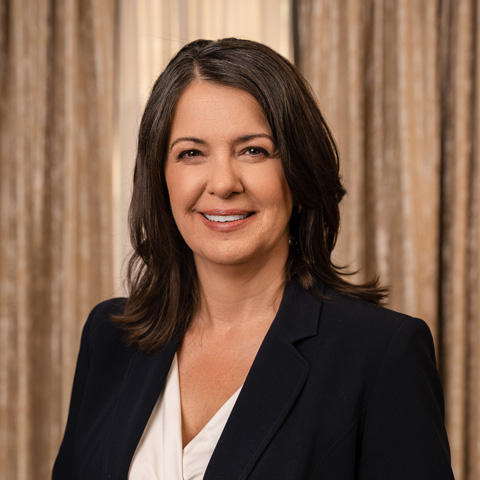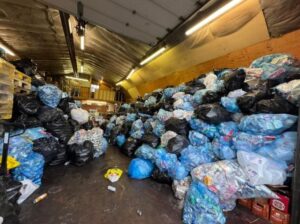
On the Government of Canada’s official website, the statement ‘Just Transition’ means to prepare the country’s workforce to “fully participate in the low-carbon economy while minimizing the impacts of labour market transitions” It details the importance of identifying and supporting “inclusive economic opportunities for workers in their communities,” and of putting workers and their communities “front and centre in discussions that affect their livelihoods.”
The goal, it states, is to be net zero. Over the last couple of years, Prime Minister Justin Trudeau’s government has held roundtables with experts, unions, and industry leaders, received over thirty thousand written submissions and has met with provincial leaders and Indigenous groups.
Speaking at a recent media scrum event, Premier Danielle Smith explained her reservations with the plan and offered ideas of how a greener plan might work for Alberta. “Just Transition is the language they used when they phased out the coal industry. If they wanted to talk about sustainable jobs, that’s completely different. We would be happy to talk to them about sustainable jobs and carbon tech, sustainable jobs in hydrogen and sustainable jobs in this new economy that we are developing around small modular nuclear and other types of projects,” explained Premier Smith.
She pointed to the Albertan oil sands producers, saying they have an “aggressive strategy to reduce emissions and use more bitumen beyond combustion.” She also said that there is a petrochemical industry. “This is not about phasing out any of these jobs. It’s about growing them and expanding the opportunity for oil and natural gas workers, and that’s the kind of language I would like to hear the Prime Minister use.”
One of the most recent announcements from the federal government in late December proposes legislation requiring at least twenty percent of new, light-duty vehicles sold in Canada to be zero-emission by 2026 and 100 percent by 2035. In response, Premier Smith said her own experience with a hybrid vehicle through the summer raised the alarm for her. “There’s a five-year waiting list for hybrid vehicles with Toyota and an equally long waiting list for other electric vehicles. How do you then mandate that twenty percent of vehicles sold in Alberta are going to be electric when they aren’t even going to be available?”
The Premier said she had also recently spoken to a developer who installs transformers, noting there’s an 80-week delay to get one. “We used to be able to get them within days. We’ve got a two-year wait to even be able to upgrade our power grid.” She said an honest conversation about “what’s doable and what’s possible” has to happen sooner rather than later.
Working with the federal government to find common ground is the first approach Premier Smith said she wants to take. “If we are working towards the same goal of emissions reduction, and we have a reasonable timeframe, and we are working towards having the same kind of technological advancement, then I think we can work collaboratively and cooperatively.”
Premier Smith sent two letters to Prime Minister Justin Trudeau in January, supporting Alberta’s energy sector. The first letter, sent on January 11, focused on Japanese Prime Minister Fumio Kishida’s visit to Canada. “Given Alberta’s close cultural and economic integration with Japan and given our role in supplying responsible energy to the world, I urge you to raise Alberta’s strong desire to supply affordable, sustainable and reliable energy to Japan,” she wrote.
She mentioned that Japan is the second-largest global importer of Liquified Natural Gas (LNG). In 2021, nearly ten percent of its imports originated in Russia, “presenting significant challenges given the ongoing conflict in Ukraine.” She noted that Alberta’s “unparalleled energy resources” and “commitment to emissions reductions,” along with historical connections with Japan, put the province in a position to be a “key contributor to Japan’s efforts to diversify its LNG supply.”
Her second letter penned to the Prime Minister was released last Thursday. The letter focused on the federal government’s Just Transition plan. Premier Smith said the world needs more Canadian energy, not less. “According to your government’s own predictions, the federal Just Transition initiative alone will risk a full 25 percent of Alberta’s economy and 187,000 jobs in Alberta while also causing major disruptions and displacement to 13.5 percent of Canada’s workforce.”
She stated that the relationship between the Alberta government and the federal government was at a “crossroads” and encouraged working together to fix it. In the letter, the Premier offered four objectives. The first was to decrease Canada’s and Alberta’s net emissions substantially. The second was accelerating private and public investment in projects that use/develop carbon capture, geothermal, petrochemicals, zero-emission vehicles and nuclear. The third objective focused on attracting a larger skilled workforce, while the fourth was to increase the export of LNG and other resources to reduce global emissions.
She closed the letter by asking for a meeting. “Prime Minister, we can and must work together. Operating in political silos as adversaries on this issue is getting us nowhere, and I believe all Canadians are tired of seeing it. Canada should be the world’s greatest energy superpower. It can be if we come together collaboratively in pursuit of that objective. There is no limit to our nation’s potential,” she concluded.
Should the first approach of working together not pan out, Premier Smith pointed to the Sovereignty Act. “If the federal government is pursuing emissions caps and targets that are too aggressive and too short of a time frame and are unachievable, it is a defacto production cap which means it’s a violation of our constitutional right to choose to develop our own resources.”
She explained that if her government puts forward a “robust plan to reduce emissions in a way that works for Alberta,” they will be ready, if necessary, to take the federal government to court and fight. “We are not phasing this industry out. We don’t have to. We can export LNG, which will reduce global emissions. We can use carbon technology to capture C02 and embed it into useful projects or bury it underground. We can develop a hydrogen industry. We can develop a small modular nuclear industry. Those are all the things that get us to the same goal.”







More Stories
Community spirit shines at large-scale youth baseball event
Birthday party chaos sung beautifully by Pumpjack Players’ youth in spring musical
Gearing up for another season of cars, cruising and camaraderie